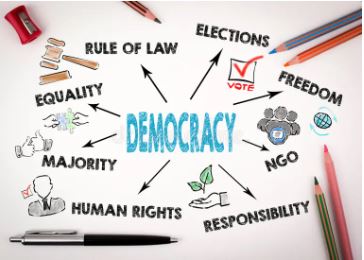BY: AMIR IDRIS
On September 18, 2024, South Sudan’s transitional government postponed elections until December 2026 due to the failure to implement the necessary legal, financial, and technical requirements for credible elections. This election delay raises an important question: Will South Sudan ever successfully transition to democracy? If so, what will it take to achieve that?
South Sudan’s crisis can be traced to its inception as an independent country in 2011 and its deep structural problems. Independence did not lay the foundation for the people of South Sudan to build institutions for a functioning state and nation. The post-independence government has favored certain ethnic groups over others. The transitional constitution concentrated significant authority in the hands of the president, promoting political elites in urban centers while disempowering ordinary citizens. Centralizing power in Juba, the capital city, undermined local participation and hindered the creation of political space for civic opposition. This governance model has sustained a shallow perception of the country as a unified nation-state, while ethnic and regional tensions have continued to simmer.
While the people of South Sudan bear significant responsibility for the country’s troubles, the international community’s policy has exacerbated the crisis by framing the problem and setting the agenda for the country. The international community tends to view South Sudan as a problem in need of humanitarian aid, elections, and violence mitigation, rather than an opportunity for trade, investment, and growth.
Since the civil war broke out in 2013, two peace agreements, signed in 2015 and 2018 with international backing, failed to address the country’s structural problems. Instead, these peace deals preserved and promoted the political and economic interests of unelected political leaders, leaving ordinary citizens without access to inclusive and responsive democratic institutions.
South Sudan does not need a piecemeal approach to resolve its problems. While elections may help build some trust in the political system, they alone will not resolve the country’s deep structural problems. After all, South Sudan was not built as a democracy meant to serve ordinary citizens. It has remained an authoritarian polity, with the roots of violence and oppression embedded in its history of colonialism and the national liberation struggle before independence. What South Sudan desperately needs is not just a change of political leadership through elections, but a new form of independence focused on building its political, economic, and security institutions, after failing to manage its pluralism.
Therefore, the people of South Sudan must look inward, not outward, for a solution. They need to engage in an honest dialogue about the country’s failure to succeed and have a constructive discussion on how to forge a social contract that will foster stability and growth. The key for them is to define the problem and set the agenda themselves. Currently, there is no consensus on what the problem is. The main question facing South Sudanese is how to decouple ethnic identities from the state and strip away their power as the nucleus of political community and nationhood. This leads to two critical questions: How can South Sudanese forge a consensus on the idea of South Sudan as a viable democratic state, anchored in citizenship rather than ethnic identity? And how can they address the issue of justice?
South Sudan is currently debating its future in a disorderly manner. Some marginalized political and community groups, in the absence of an inclusive and credible political process, are resorting to violence in their struggle for economic and political representation. This should not be the case. The alternative is for South Sudan to engage in a national conversation about its future at a national conference. Representatives from all political, civic, religious, and regional groups should come together to forge a consensus on establishing the democratic infrastructure and institutions necessary for a functioning state. This conference must reflect the country’s multiethnic character, ensuring that 50 percent of the delegates are women and a substantial proportion are young people. The goal would be to draft a new constitution to replace the current exclusionary one, which was hastily adopted just days before the declaration of independence.
For South Sudan to achieve true democracy, the solution must come from within. This requires moving beyond flawed models that rely on peace agreements and elections as pathways to democracy. Instead, a South Sudanese-led process focused on convening a national conference can empower ordinary citizens to avoid the pitfalls of elite-driven governance. It will enable them to reinvent themselves, secure a second independence, and foster stability and growth, not only in South Sudan but also in the broader Horn of Africa.
Amir Idris is a professor of African history and politics in the Department of History at Fordham University, New York.
The views expressed in ‘opinion’ articles published by Radio Tamazuj are solely those of the writer. The veracity of any claims made is the author’s responsibility, not Radio Tamazuj’s.




